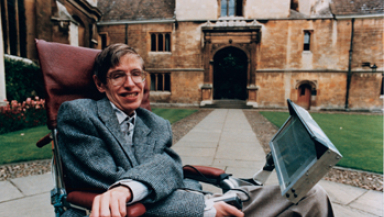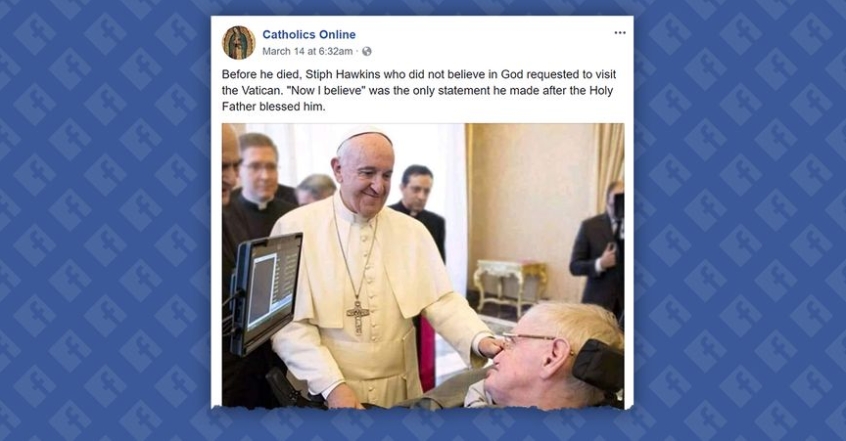
The final book of late scientist Stephen Hawking also gives his final verdict on whether there is a Higher Being directing the universe.
In 'Brief Answers to the Big Questions', finished by his family after his death, the celebrated scientist offers answers to the questions he was most frequently asked during his lifetime.
They include questions around God, a subject he addressed from time to time but always loosely enough to leave some wondering, hoping even, that he really was a believer and not an atheist after all.
At the time of his death in March this year, there was speculation that he had actually converted to Christianity after a visit to the Vatican during which he met Pope Francis.
Fact-checking website Snopes quickly poured cold water on the rumors: 'There is no evidence that Hawking deviated from those lifelong views before his death, and he did not make any declaration of faith after a meeting with Pope Francis.'

At best, he appeared open to the idea of God in his bestselling 1988 book, 'A Brief History of Time', in which he reflected on what it would mean if scientists were to work out a 'theory of everything'.
'It would It would be the ultimate triumph of human reason – for then we should know the mind of God,' he said.
But in the few times Hawking spoke about God in more recent years, it was to suggest He was an irrelevance to life or the workings of the universe.
Speaking to ABC News in 2010, he said: 'One can't prove that God doesn't exist, but science makes God unnecessary.'
Then in an interview with The Guardian in 2011, he said notions of an afterlife were a fairytale.
'I regard the brain as a computer which will stop working when its components fail,' he said. 'There is no heaven or afterlife for broken-down computers; that is a fairy story for people afraid of the dark.'
Now, his final book seems to put the speculation to rest once and for all in answer to the question of whether there is, in his view at least, a God.
'There is no God. No one directs the universe,' he writes in 'Brief Answers to the Big Questions'.
The scientist, who suffered from ALS, added: 'For centuries, it was believed that disabled people like me were living under a curse that was inflicted by God. I prefer to think that everything can be explained another way, by the laws of nature.'
Read More:
Did Stephen Hawking really convert to Christianity?
Stephen Hawking was wrong: 3 reasons why God must exist
Stephen Hawking believed we don't need God to account for the universe. Was he right?













